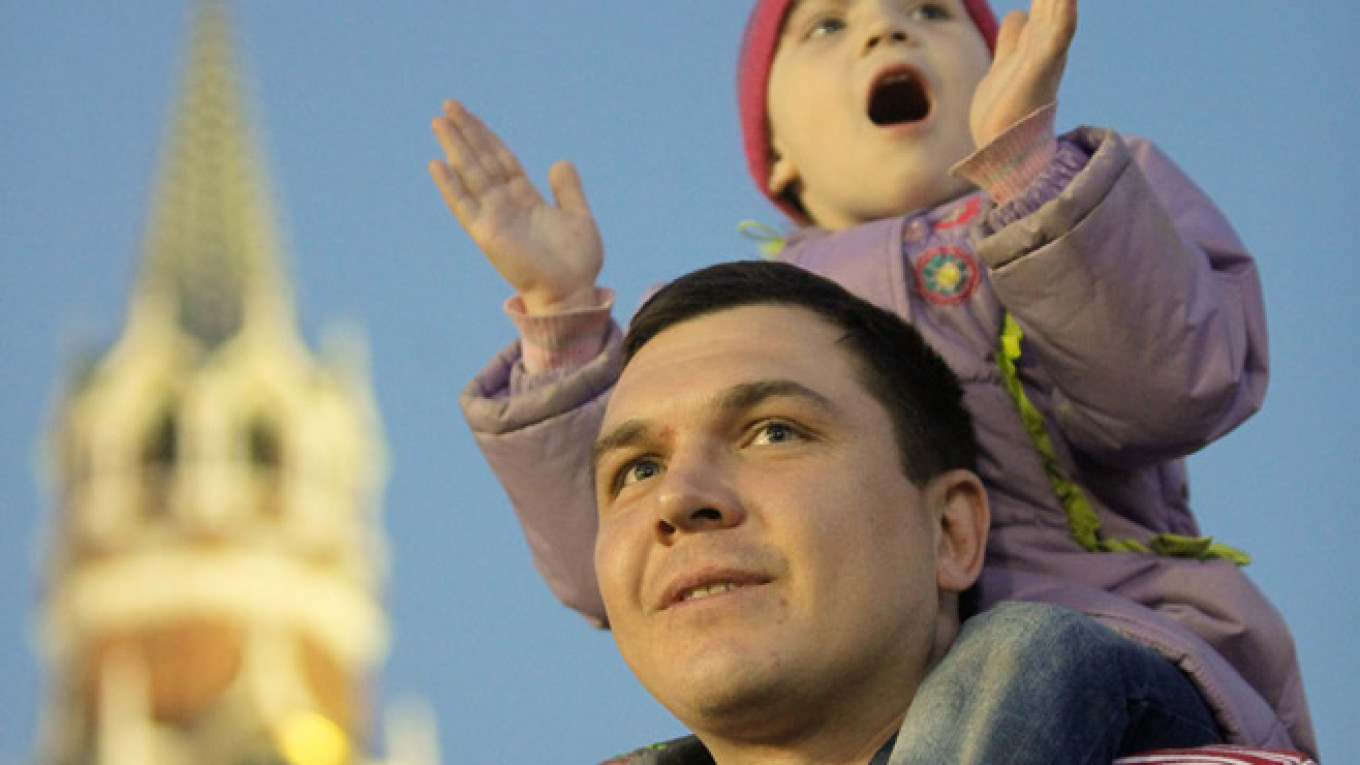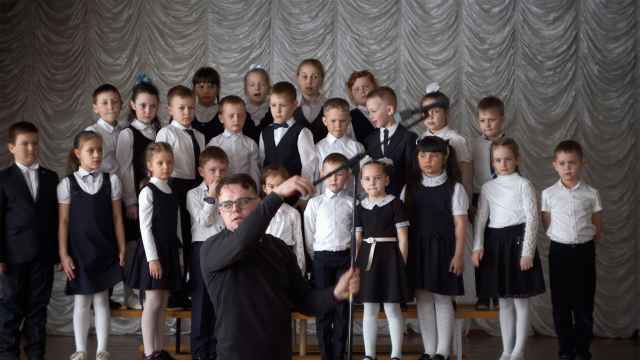I was an MBA student at Harvard Business School when I unexpectedly got pregnant. The biological father was Russian, married with a son, and working for an investment bank in London. We had been lovers and friends for many years. He insisted that I have an abortion. I refused, and he disappeared — permanently.
I was 29 years old. I chose to keep the baby, drop out of school, find a full-time job, and become a mom, alone, in Moscow. I never told my son's biological father about his birth, and I never received a penny from him.
Years later, this man even walked past my 6-year-old son and I on a narrow London street, and just kept walking, pretending he did not know who we were. I am American, but I learned how to be a single mother in Russia.
My son's biological father, like many other Russian dads, chose to walk away from the child and free himself of all parental responsibility — a common trend. If you cannot handle the idea of being a father, or you are not "ready" for the responsibilities of fathering a child, you simply disappear.
Russian society does not condemn men for walking away from their children. It is almost as if men are expected to leave, and the fathers who do support their children are hailed as heroic.
As an American, who's child's father is a Russian citizen residing in Britain, there was no family court that I could to turn to for parental support. So I did nothing, and like many Russian single mothers, I left the line for "father" blank on my son's birth certificate.
Many of my Russian friends were raised by single mothers. My Russian "mama" is an amazing single mom who raised her daughter, my best friend, alone in a single room they shared in a communal apartment in central Moscow.
Being a single mom in Russia is nothing new though. According to research by Moscow's Higher School of Economics, nearly 18 percent of all mothers in Russia raise their children alone, with some 15 percent of all children under 18 raised without a father present. Russian mothers have been raising children on their own for generations, so much so that Russian society is already a bit indifferent to their stories.
It is easy to overlook how hard it is — emotionally, financially, physically — to raise a child alone. Each woman finds herself in these circumstances for different reasons, but Russia's single mothers share an unwavering and infinite love for their children and a refusal to give up.
In the course of writing my book, "From A to Я: Motherhood, Russian-Style," I spoke to many Russian single mothers about their experiences.
Masha, a graphic designer, lives in Lyubertsi, Moscow region, alone with her 4- year-old son. Her son's father does not see his son, nor does he help financially. "Being a single mum is hard, especially morally. You need a strong character to raise a child," Masha told me. When I asked her what her secret is, she said: "Never stopping and constantly cultivating additional strength."
Natasha is 35 and lives with her young son in Moscow. "Our papa disappeared, we do not have one," she told me. "It is difficult to be the mom and the dad. On the one hand, you know that a male role model is necessary, especially for a boy. But on the other hand, you do not bring home the first guy you meet just to say 'we have a papa.'"
Natasha does not force her son's father to see their son. "It is best for the child to grow up in a calm atmosphere with good vibes rather than with fighting. My son's father was afraid of the responsibility of being a parent, so he left."
Russian women are often blamed when a man leaves his family, accused of driving him away by being "too strong." Nekrasov's comment that Russian women "will stop a running horse and run into a burning house" is often quoted. Many still think that if a woman chooses to give birth, then she must be prepared to carry the burden alone.
And the problem has only worsened with the fall of the Soviet Union. In 1989, the number of children registered as 'fatherless' stood at 2.6 million. In 2012, that number grew to 3.9 million, while their share of the population climbed from 6.5 percent to 14.5 percent of all children under 18.
Until the government begins to hold fathers accountable for supporting their children, it is hard to imagine much changing. Russian mothers are often wary of using the existing legal system to try and get some sort of child support.
It is incredibly easy to disguise real income, and there isn't a convincing track record of enforcing court ordered child support. Mothers are left having to "negotiate" with the biological fathers of their children, which often results in little or no financial support.
Russian single mothers are indeed impressive in their willingness to take full responsibility for their children. But a man should still be responsible for the fact that he fathered a child or chose to leave his family. Russian society is trying, rather unconvincingly, to justify this very real and worrying tendency of fathers who do not take responsibility for their children.
My son is now 8 and has four sisters: two little and two big. My husband is a wonderful, loving father. We are all very lucky to have each other. But even though I am no longer a single mum, I will never forget what it was like to be one in Moscow.
Tanja Maier lives in Vienna, Austria with her family. She is currently working on a book "From A to Я: Motherhood, Russian-Style."
A Message from The Moscow Times:
Dear readers,
We are facing unprecedented challenges. Russia's Prosecutor General's Office has designated The Moscow Times as an "undesirable" organization, criminalizing our work and putting our staff at risk of prosecution. This follows our earlier unjust labeling as a "foreign agent."
These actions are direct attempts to silence independent journalism in Russia. The authorities claim our work "discredits the decisions of the Russian leadership." We see things differently: we strive to provide accurate, unbiased reporting on Russia.
We, the journalists of The Moscow Times, refuse to be silenced. But to continue our work, we need your help.
Your support, no matter how small, makes a world of difference. If you can, please support us monthly starting from just $2. It's quick to set up, and every contribution makes a significant impact.
By supporting The Moscow Times, you're defending open, independent journalism in the face of repression. Thank you for standing with us.
Remind me later.






